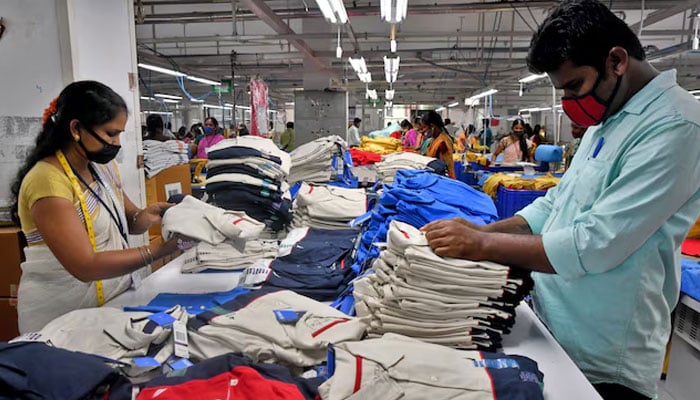How SMEs in South Asia perform
LAHORE: The small and medium enterprises (SMEs) sector plays a critical role in the economies of India, Bangladesh, and Pakistan, contributing significantly to employment, GDP, and social development. A comparison shows Pakistan’s SME sector faces more challenges than its neighbours’.
India has a relatively well-defined policy framework for SMEs, with various government initiatives such as the Micro, Small and Medium Enterprises Development (MSMED) Act, 2006. The government offers various schemes for credit, technology upgrades, and marketing support. India also has a robust legal framework to protect intellectual property rights (IPR) and promote innovation among SMEs.
In Bangladesh, the SME policy framework is evolving, with significant attention given to developing the sector. The Small and Medium Enterprise Foundation and the Bangladesh Small and Cottage Industries Corporation (BSCIC) play crucial roles in supporting SMEs. However, regulatory challenges like taxation, bureaucracy, and corruption hinder SME growth.
Pakistan’s regulatory environment for SMEs is less developed compared to that of India and Bangladesh. The country has introduced the SME Policy 2021, which aims to address critical issues like access to finance, regulatory burdens, and market access. However, implementation remains a challenge due to political instability, bureaucratic hurdles, and a lack of coordination among government bodies.
Indian SMEs have relatively better access to finance through a variety of channels, including government schemes like the Credit Guarantee Fund Trust for Micro and Small Enterprises (CGTMSE) and the MUDRA Yojana. Access to finance remains a significant challenge for SMEs in Bangladesh. Many SMEs rely on informal sources of finance due to high interest rates and stringent collateral requirements from formal institutions.
The introduction of SME-targeted financial products and microfinance institutions has somewhat alleviated this issue, but challenges remain. Pakistani SMEs face considerable difficulties in accessing finance, primarily due to the lack of credit history, high-interest rates, and stringent collateral requirements. The banking sector is cautious in lending to SMEs, often perceiving them as high risk.
India’s large and diverse market offers significant opportunities for SMEs. The country’s burgeoning middle class provides a vast consumer base, and digitalization has opened new avenues for market access. In Bangladesh, SMEs play a crucial role in the export sector, particularly in the garment industry. However, the domestic market is relatively small, and many SMEs focus on local demand, which limits their growth potential.
The Pakistani market is smaller compared to India but offers potential in specific sectors like textiles, agriculture, and light engineering. However, political instability, security concerns, and inconsistent policies affect market conditions.
India has made significant strides in infrastructure development, particularly in digital infrastructure, which has greatly benefited SMEs. Initiatives like ‘Digital India’ and ‘Make in India’ have provided SMEs with opportunities to leverage technology for growth. However, rural areas still lag better infrastructure.
Bangladesh is improving its infrastructure, particularly in transportation and energy sectors, which are crucial for SME operations. However, challenges remain, particularly in rural areas. Infrastructure challenges are a significant barrier for SMEs in Pakistan. Issues like electricity shortages, poor road networks, and inadequate logistics hamper SME business operations. Many SMEs lack the resources to invest in modern tools and processes.
India has a relatively large pool of skilled labour, and various government and private initiatives focus on skills development for SMEs. However, there is still a significant skills gap, particularly in areas like advanced manufacturing and digital technologies. Bangladesh faces the challenge of a shortage of skilled labour, particularly in rural areas. However, the government is investing in vocational training and education to improve the skills base, which is crucial for the growth of SMEs.
Pakistan’s education and vocational training systems need significant improvement to meet the needs of the SME sector. The skills gap is a major issue, particularly in technical and managerial areas, which limits the potential for SMEs to scale and compete internationally.
-
 Anti-monarchy Group Reacts To Prince William, Kate Middleton Statement On Epstein Scandal
Anti-monarchy Group Reacts To Prince William, Kate Middleton Statement On Epstein Scandal -
 Andrew 'must' Apologize Not Wider Royal Family For Jeffrey Epstein Links
Andrew 'must' Apologize Not Wider Royal Family For Jeffrey Epstein Links -
 Super Bowl 2026: Why Didn't Epstein Survivors Ad Air On TV?
Super Bowl 2026: Why Didn't Epstein Survivors Ad Air On TV? -
 'Harry Potter' TV Series Exec Teases 'biggest Event In Streaming': Deets
'Harry Potter' TV Series Exec Teases 'biggest Event In Streaming': Deets -
 Camila Mendes Finally Reveals Wedding Plans With Fiancé Rudy Mancuso
Camila Mendes Finally Reveals Wedding Plans With Fiancé Rudy Mancuso -
 Beatrice, Eugenie Blindsided By Extent Of Sarah Ferguson’s Epstein Links
Beatrice, Eugenie Blindsided By Extent Of Sarah Ferguson’s Epstein Links -
 Girl And Grandfather Attacked In Knife Assault Outside Los Angeles Home
Girl And Grandfather Attacked In Knife Assault Outside Los Angeles Home -
 Super Bowl Halftime Show 2026: What Did Trump Say About Bad Bunny?
Super Bowl Halftime Show 2026: What Did Trump Say About Bad Bunny? -
 Piers Morgan Defends Bad Bunny's Super Bowl Performance, Disagrees With Trump Remarks
Piers Morgan Defends Bad Bunny's Super Bowl Performance, Disagrees With Trump Remarks -
 Andrew Lands In New Trouble Days After Royal Lodge Eviction
Andrew Lands In New Trouble Days After Royal Lodge Eviction -
 Instagram, YouTube Addiction Case Trial Kicks Off In California
Instagram, YouTube Addiction Case Trial Kicks Off In California -
 Agentic Engineering: Next Big AI Trend After Vibe Coding In 2026
Agentic Engineering: Next Big AI Trend After Vibe Coding In 2026 -
 Keke Palmer Makes Jaw-dropping Confession About 'The Burbs'
Keke Palmer Makes Jaw-dropping Confession About 'The Burbs' -
 Cher Sparks Major Health Concerns As She Pushes Herself To Limit At 79
Cher Sparks Major Health Concerns As She Pushes Herself To Limit At 79 -
 Former NYPD Detective Says Nancy Guthrie's Disappearance 'could Be Hoax'
Former NYPD Detective Says Nancy Guthrie's Disappearance 'could Be Hoax' -
 King Charles Publicly Asked If He Knew About Andrew's Connection To Epstein
King Charles Publicly Asked If He Knew About Andrew's Connection To Epstein




